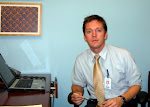What am I up to? (21 May- 25 May)
Baylor Swaziland is funded by UNICEF to organize and complete periodic regional trainings. The first training of this fiscal quarter was last week. The teachers were a handful of Baylor staff and myself. The pupils were twenty community nurses. Here is an overview.
MONDAY: Lectures included: epidemiology of HIV in Swaziland, the pathophysiology of HIV, the diagnosis of HIV, and primary care of the HIV+ child. Highlights included:
- The opening song; though we started about three hours late, the group immediately distinguished themselves as a pitch-perfect choral ensemble, despite the fact that it was the first time they had ever been in the same room, much less harmonized.
- The five minute video of the HIV lifecycle: It is an animated production that makes HIV look like a spherical spaceship and uses sci-fi images to teach how HIV multiplies. Imagine what Steven Spielberg would see if he looked into an electronic microscope.
TUESDAY: Lectures included: ARVs, TB, opportunistic infections, and PMTCT. Highlights included:
- The OI case identification contest. For the opportunistic infection lecture, I presented a series of cases. The participants, who were divided into teams, were tasked with identifying the OI in a format similar to final jeopardy. In the end, a team who had named themselves “the ducks” narrowly defeated “Wonderboy’s team”. Other team names included “the women of excellence”, “the Zambians”, “the elephants” and the ever-popular, internationally renowned “A team”.
WEDNESDAY: Lectures included: ARVs, TB, opportunistic infections, nutritional management, and infant feeding. The repeats are due to the scheduled rotation of half of the group though the Baylor Clinic on both Tuesday and Wednesday mornings. Highlights included:
- The infant feeding workshop, ran by Eileen, which allowed the attendees to rotate through stations and perform various tasks, including growth charting, dietary advising, lactation counseling, etc.
- The shining feedback from the half-day clinic visits. Comments included:
o “It was very very touching to me. When the mother entered you could see depression and all of the things she was going through. The explanation she got [at the clinic,] the advice, it was good.”
o "That the pharmacists sit down with everybody and not that song that we usually hear. At times, when you see the queue you just say two times a day of this, two of that. It is not the best way. At Baylor, the way they counsel and label the medicine, it is good.”
o “Every thing was in order.”
o “I liked the way they kept records, on…what do you call that thing?” Another nurse replies, “Computer?” “Yes! The computer! We should use them too.”
THURSDAY: Lectures: counseling about HIV, adherence to ARVs. Highlights:
- Nosipho, the social worker who gave these lectures, told a story about a HIV+ man who, not knowing his status, entered a Swazi testing center with a gun, put it down on the table in the counselor’s office, stood blocking the door, and said “Okay, I would like my results now.” “What would you do?” she then asked the group. A lively discussion followed. Answers included:
o “Tell him he is negative.”
o “Tell the truth.”
o “Ask him to please come back later.”
o “Quickly grab the gun.”
FRIDAY: Lectures: Case presentations by participants illustrating what they learned. Highlights:
- Having promised to lead the morning song if the group maintained punctuality, I delivered on that promise. In an attempt to cover for me, the chorus of nurses sang backup even more beautifully than they had in days prior.
- The discussion about the “way forward” after the workshop was heartening, with participants expressing a desire to return to their respective clinics and institute several new practices, including:
o Improving adherence numbers and follow-up
o “Need to probe more regarding HIV status”
o Renewed focus on PMTCT
o Improving the physical exam for recognizing HIV cases
o To start ARVs early, before the child is too sick
o More diagnostic attention to improve and guide care
o Improving HIV staging
o When a patient is on ARVs, to “recognize the drugs, review them, and advise.”
o To share ideas and lessons learned with other colleagues after returning from the workshop.
--
Last week was a good week. Except for the tripe, that is. (More on this soon.)
This week, I am back to seeing patients. (More on this soon as well.)
Labels: What am I up to?


0 Comments:
Post a Comment
<< Home